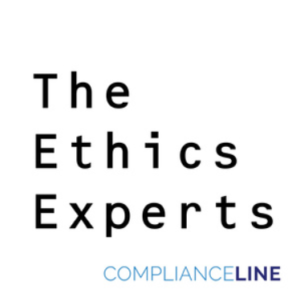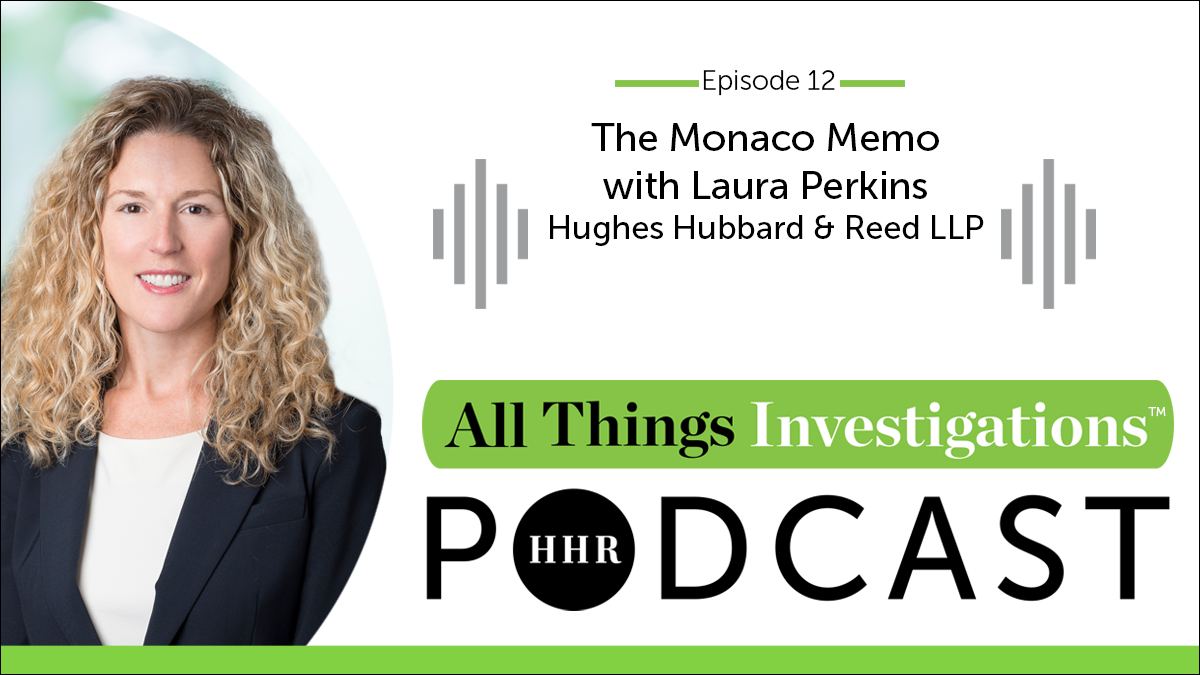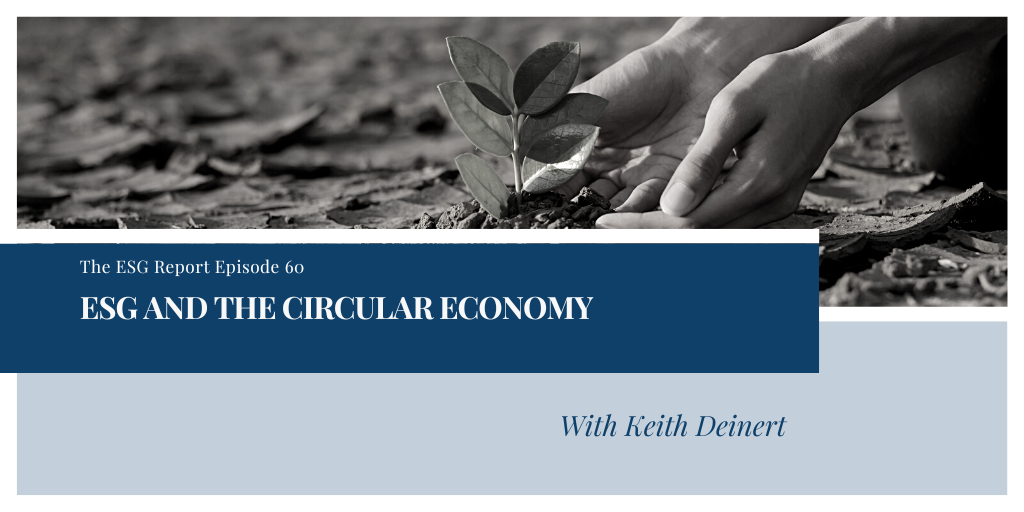Today, we conclude our exploration of the Monaco Memo by considering what all this may mean for compliance professional going forward. Department of Justice (DOJ) officials have emphasized that the changes laid out in the Monaco Memo and the requirements around Chief Compliance Officer (CCO) Certification are to empower compliance professionals. Deputy Attorney General Lisa Monaco said in the speech (Monaco Speech) announcing the Monaco Doctrine, “Companies should feel empowered to do the right thing—to invest in compliance and culture, and to step up and own up when misconduct occurs. Companies that do so will welcome the announcements today. For those who don’t, however, our Department prosecutors will be empowered, too—to hold accountable those who don’t follow the law.”
This was refined by Assistant Attorney General Kenneth A. Polite, who said in a speech (Polite Speech) after the Monaco Doctrine was announced, “in March 2022, I announced that, for all Criminal Division corporate resolutions (including guilty pleas, deferred prosecution agreements, and non-prosecution agreements), we would consider requiring both the Chief Executive Officer and the Chief Compliance Officer (CCO) to sign a certification at the end of the term of the agreement. This document certifies that the company’s compliance program is reasonably designed, implemented to detect and prevent violations of the law, and is functioning effectively. These certifications are designed to give compliance officers an additional tool that enables them to raise and address compliance issues within a company or directly with the department early and clearly. These certifications underscore our message to corporations: investing in and supporting effective compliance programs and internal controls systems is smart business and the department will take notice.”
Finally, Principal Associate Deputy Attorney General Marshall Miller said in a speech (Miller Speech), also after the announcement of the Monaco Doctrine, “I will focus on the ways those policy changes incentivize corporate responsibility and promote individual accountability – by clarifying, rethinking and standardizing policies on voluntary self-disclosure and corporate cooperation. I’ll also address how Department prosecutors are assessing some of the most challenging corporate compliance issues of the day, such as how incentive compensation systems can promote — rather than inhibit — compliance and how companies should be managing data given the proliferation of personal devices and messaging platforms that can take key communications off-system in the blink of an eye.”
However, I think many of these changes will put additional pressures on compliance programs. The new requirements for self-disclosure move beyond those announced under the FCPA Corporate Enforcement Program. The Monaco Memo stated, “it is imperative that Department prosecutors gain access to all relevant, nonprivileged facts about individual misconduct swiftly and without delay.” [emphasis supplied] This in turn, puts even more pressure on internal reporting, whether through a hotline, online reporting portal, or simply an employee speaking up to a manager. That pressure means triaging, efficiently elevating and effectively investigating and evaluating the evidence developed. The clock is ticking, and a compliance professional does not know what the DOJ might already know or if a whistleblower has reported to the Securities and Exchange Commission (SEC) or another federal department or agency.
But the pressure does not end when self-disclosure occurs. The DOJ wants speed above all else in the delivery of evidence which could be used in the prosecution of individuals. Miller stated, “In building cases against culpable individuals, we have heard one consistent message from our line attorneys: delay is the prosecutor’s enemy — it can lead to a lapse of statutes of limitation, dissipation of evidence, and fading of memories. The Department will expect cooperating companies to produce hot documents or evidence in real time. [emphasis supplied] And your clients can expect that their cooperation will be evaluated with timeliness as a principal factor. Undue or intentional delay in production of documents relating to individual culpability will result in reduction or denial of cooperation credit. Where misconduct has occurred, everyone involved — from prosecutors to outside counsel to corporate leadership — should be “on the clock,” operating with a true sense of urgency.”
This requirement changes the dynamics of an investigation. Every CCO and compliance professional in such a situation must now speed up not simply their investigation process and turning over documents but their remediation efforts going forward. Of course, remediation is still an equally important part of your overall way forward to receive credit under the FCPA Corporate Enforcement Policy. A root cause analysis is also still a key component as well.
Another area for heat for the compliance professional is the new requirements for clawbacks. In the Miller Speech, he stated, “What we expect now, in 2022, is that companies will have robust and regularly deployed clawback programs. All too often we see companies scramble to dust off and implement dormant policies once they are in the crosshairs of an investigation.”
Companies should take note: compensation clawback policies matter, and those policies should be deployed regularly. A paper policy not acted upon will not move the needle — it is really no better than having no policy at all.
To up the ante, the Deputy Attorney General has instructed the Criminal Division to examine how to provide incentives for companies to clawback compensation, with particular attention to shifting the burden of corporate financial penalties away from shareholders — who frequently play no role in misconduct — onto those who bear responsibility. In addition to this stick, Miller also noted the carrot the DOJ wants to see, noting, “compensation systems to promote compliance isn’t just about clawbacks. It’s also about rewarding compliance-promoting behavior. For years, companies have designed and fine-tuned sophisticated incentive compensation systems that reward behavior that enhances profits.” She concluded, “We’ll be evaluating whether corporations are making the same types of investments in adopting and calibrating compensation systems that reward employees who promote an ethical corporate culture and mitigate compliance risk.”
The final area where the heat is on is the type of conduct which leads to the FCPA violations. Three of the criteria for determining whether a monitor will be mandated to deal with the length or pervasiveness of the conduct and whether senior management was involved; was the violation caused by the “exploitation of an inadequate compliance program or system of internal controls”; and finally, if “compliance personnel were involved or were basically negligent in failing to “appropriately escalate or respond to red flags.””
Compliance professionals should use the Monaco Doctrine, Memo, and related speeches to explain to senior management to educate C-Suite and Board leadership why and how an investment in compliance can pay off. For compliance professionals your work became much more important.








